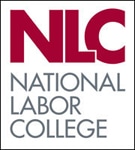
The Rail Workers’ Hazmat Training Program has been awarded funding to provide safety training to rail workers to increase their knowledge of the transportation of radioactive materials. To meet this training need, the rail program at the National Labor College will conduct a two-day Radiological Transportation Train the Trainer course from April 25-27, 2013.
This federal grant from the National Institute of Environmental Health Sciences (NIEHS) provides transportation, lodging and meals for training participants. No stipend or per diem is allowable under the conditions of this grant.
The 16-hour DOE Modular Emergency Response Radiological Transportation Training (MERRTT) course will be held at Holiday Inn in Laurel, Md. The program begins on Thursday morning, April 25, at 8 a.m. and ends at 3 p.m. on Saturday, April 27. It will include an intermission at 1 p.m. on Friday, April 26, for observance of Workers’ Memorial Day activities at the National Labor College.
Interested rail workers can register online at http://www.hazmatgmc.org by selecting the course desription tab, followed by the “Register Now” link for the Radiological Transportation Training.
Space for this course is limited and registrations must be received no later than 1 p.m. April 10, 2013.
For more information, call Freddie Thomas in the Hazmat office at (301) 431-5457, or email fthomas@nlc.edu.